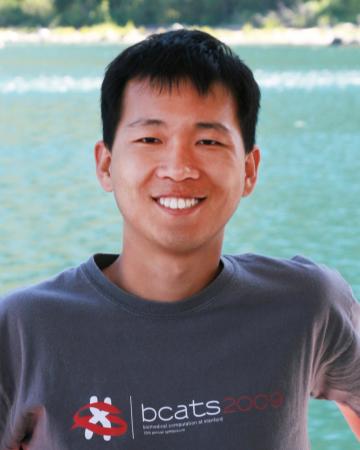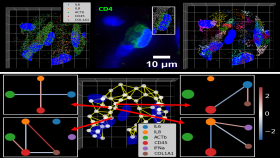Peng Qiu, associate professor in the Wallace H. Coulter Department of Biomedical Engineering at Georgia Tech and Emory, has been named an ISAC Marylou Ingram Scholar by the International Society for Advancement of Cytometry (ISAC). Qiu’s scholar status extends through the year 2022. Scholars specialize in state of the art knowledge related to biomedicine, technology, and other areas of emerging sciences relevant to cytometry. The program is designed as a career development initiative for those under the age of 40.
Cytometry is the measurement of the characteristics of cells. One use of cytometry is in cell biology research and in medical diagnostics to characterize cells in a wide range of applications associated with diseases such as cancer.
Qiu’s research interests lie in the area of bioinformatics and computational biology. One of his main focuses is computational algorithms for analyzing single-cell characterizations, measured by flow cytometry, CyTOF, single-cell RNAseq, image-based profiling, microfluidics, and other single-cell technologies. ISAC is a great community and valuable resource for him to advance his research and develop collaborations.
CONTACT:
Walter Rich
Wallace H. Coulter Department of Biomedical Engineering
Georgia Institute of Technology
Media Contact
Walter Rich
Keywords
Latest BME News
Commercialization program in Coulter BME announces project teams who will receive support to get their research to market.
Courses in the Wallace H. Coulter Department of Biomedical Engineering are being reformatted to incorporate AI and machine learning so students are prepared for a data-driven biotech sector.
Influenced by her mother's journey in engineering, Sriya Surapaneni hopes to inspire other young women in the field.
Coulter BME Professor Earns Tenure, Eyes Future of Innovation in Health and Medicine
The grant will fund the development of cutting-edge technology that could detect colorectal cancer through a simple breath test
The surgical support device landed Coulter BME its 4th consecutive win for the College of Engineering competition.
New research from Georgia Tech helps doctors predict how therapies will interact with a child's immune system, potentially improving outcomes and reducing risks.








